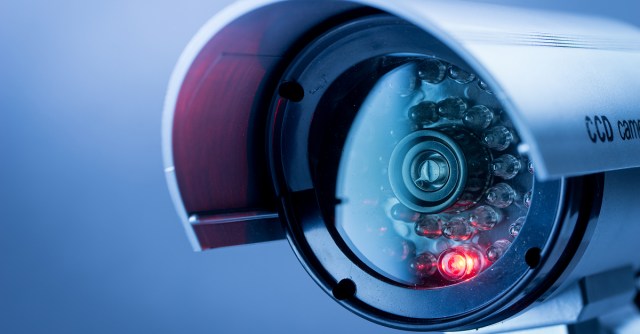A year ago, the US Department of Justice (DOJ) told US law enforcement that it had to get a warrant to use stingrays: those suitcase-sized cell site simulators used to mimic a cell tower and trick nearby phones (as in everybody’s phones, not just crooks’) into connecting and giving up their identifying information and location.
But the federal guidelines had a hole big enough to drive a police cruiser through. Namely, they didn’t apply to local law enforcement.
StingRay is the brand name of an International Mobile Subscriber Identity locator, also known as an IMSI catcher, that’s targeted and sold to law enforcement.
The term stingray has also come into use in the US as a generic term for these devices.
They cost around $400,000. The powerful, pricey gadgets are capable of tracking down serious criminals, but investigations have shown that they’re frequently used to track petty crime.
Like, say, chicken wing thievery.
On Wednesday, a coalition of civil liberties organizations including the Electronic Frontier Foundation (EFF), the American Civil Liberties Union (ACLU) and the National Association for the Advancement of Colored People (NAACP) launched an effort to rein in surveillance that it says has run amok, be it by excessive use of stingrays or other surveillance technologies.
They’ll be working with local governments on the campaign, called Community Control Over Police Surveillance, to ensure that affected communities have a voice in deciding whether police may acquire a new surveillance tool.
EFF investigative researcher Dave Maass:
Without this reform, such decisions too often are made only by local law enforcement officials seeking to acquire the latest, shiny tools; by the federal government seeking to spread “anti-terrorism” funds and its own military-grade tech; and by the vendors aggressively marketing these devices to police departments.
Law enforcement has, in fact, been like a kid in a candy store in recent years.
In 2013, the New York Times reported that federal money earmarked to thwart terrorist attacks in the US was instead getting funneled into increasingly pervasive surveillance of citizens.
That includes gunshot-detection sensors, license plate readers, data-mining of social media posts for criminal activity, tracking of toll payments when drivers use electronic passes, and at least one police purchase of a drone in Texas.
The coalition’s movement, which is also called #TakeCTRL, is looking to pass ordinances to control all that surveillance in 11 cities.
The ordinances will be tailored to each municipality, but they’ll be similar to those already adopted by Santa Clara, California. In June the county passed a groundbreaking ordinance limiting how and when law enforcement can adopt new surveillance technologies.
The cities it’s targeting are New York; Washington, D.C.; Richmond, Virginia; Miami Beach and Pensacola, Florida; Hattiesburg, Mississippi; Muskegon, Michigan; Madison and Milwaukee, Wisconsin; Seattle, Washington; and Palo Alto, California.
The ordinances will be built on these principles:
- Surveillance technologies should not be funded, acquired, or used without prior express city council approval.
- Local communities should play a significant and meaningful role in determining if and how surveillance technologies are funded, acquired, or used.
- The process for considering the use of surveillance technologies should be transparent and well-informed.
- The use of surveillance technologies should not be approved generally; approvals, if provided, should be for specific technologies and specific, limited uses.
- Surveillance technologies should not be funded, acquired, or used without addressing their potential impact on civil rights and civil liberties.
- Surveillance technologies should not be funded, acquired, or used without considering their financial impact.
- To verify legal compliance, surveillance technology use and deployment data should be reported publically on an annual basis.
- City council approval should be required for all surveillance technologies and uses; there should be no “grandfathering” for technologies currently in use.
For more information, check out the ACLU’s resource guide.

